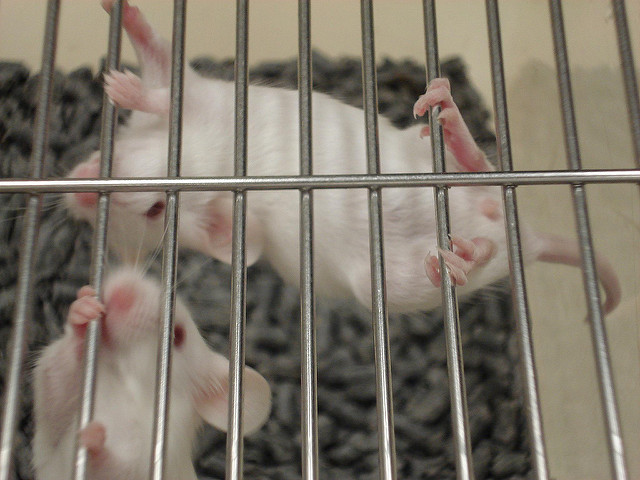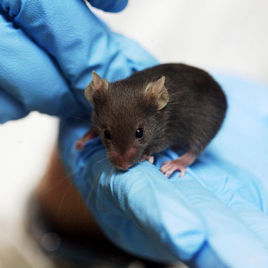
Image by Rick Eh? via Flickr Creative Commons
Letting lab mice mix with their pet-store cousins may help future research by better mimicking adult human immune systems, according to the results of a new study. Normally, adult lab mice live in abnormally clean environments, which means their immune systems rarely get exposed to different types of bacteria and viruses. Mice in a pet store, on the other hand, get exposure to various bugs while being handled by the store employees and potential buyers. Researchers were concerned that the immune systems of inbred, genetically homogenous lab mice living in sanitized environments would not serve as good analogues of the complex human immune systems. Their solution was to introduce laboratory mice to their pet-store cousins, thereby increasing the lab animals’ exposure to mice with more robust immune systems. After the two kinds of mice were paired up, the lab animals’ immune systems began to develop, bearing a closer resemblance to the immune signatures of adult humans.
Authors:
Lalit K. Beura, Sara E. Hamilton, Kevin Bi, Jason M. Schenkel, Oludare A. Odumade, Kerry A. Casey, Emily A. Thompson, Kathryn A. Fraser, Pamela C. Rosato, Ali Filali-Mouhim, Rafick P. Sekaly, Marc K. Jenkins, Vaiva Vezys, W. Nicholas Haining, Stephen C. Jameson & David Masopust
Corresponding authors:
Stephen C. Jameson and David Masopust
Original paper, published on April 20, 2016 in Nature.
Associated news story in Nature.



